I had the pleasure of growing up in North America when the reigning hatred was of communists, although most people didn’t know what a communist was and—because of weak historical understanding—only vaguely associated them with the Soviet Union. Because I am of that age, I was present when the contemporary hatred first began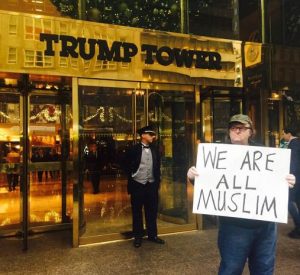 to surface.
to surface.
At the risk of sounding like Michael Moore, when I was young North America was a very different place. The cold war was winding down with Mikhail Gorbachev and the fall of the Berlin wall, the military industrial complex was facing cutbacks with austerity measures under Reagan and belt-tightening under the Bush presidents, and the system desperately needed a new—and they hoped amorphous—enemy. If we faced an enemy like Vietnam again, then we could easily either destroy them or lose another war, but with an enemy like a faceless terrorist, both within and without, the war could continue as long as the factories making arms were open for business.
fall of the Berlin wall, the military industrial complex was facing cutbacks with austerity measures under Reagan and belt-tightening under the Bush presidents, and the system desperately needed a new—and they hoped amorphous—enemy. If we faced an enemy like Vietnam again, then we could easily either destroy them or lose another war, but with an enemy like a faceless terrorist, both within and without, the war could continue as long as the factories making arms were open for business.
Before the World Trade Center bombing, however, there were signs that a new enemy was on the policy horizon. In the year preceding the bombing, Newsweek magazine, as well as other news/opinion sources, began to carry stories about China as a military threat. I followed these avidly, and since I was living in the United States at the time, I asked the students in my critical thinking class what country the media was encouraging the public to think about as an enemy. Not surprisingly, they had seen the same trends, so they said China.
A few months later, after the World Trade Center bombing, I happened to mention the conversation to them again, but to my shock, no one remembered what country we had been discussing, although many of them were of the opinion that it must have been Afghanistan. Somehow they had been taught who to hate and fear despite their earlier suppositions,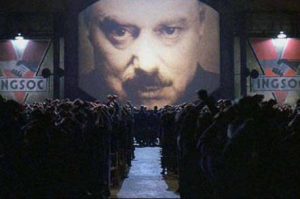 and then had forgotten that they had always been at war against Eurasia, to quote Orwell’s prophetic 1984: “Actually, as Winston well knew, it was only four years since Oceania had been at war with Eastasia and in alliance with Eurasia. . . . Officially the change of partners had never happened. Oceania was at war with Eurasia: therefore Oceania had always been at war with Eurasia. The enemy of the moment always represented absolute evil, and it followed that any past or future agreement with him was impossible.”
and then had forgotten that they had always been at war against Eurasia, to quote Orwell’s prophetic 1984: “Actually, as Winston well knew, it was only four years since Oceania had been at war with Eastasia and in alliance with Eurasia. . . . Officially the change of partners had never happened. Oceania was at war with Eurasia: therefore Oceania had always been at war with Eurasia. The enemy of the moment always represented absolute evil, and it followed that any past or future agreement with him was impossible.”
On the day of the World Trade Center bombing, I was eating breakfast and watching the events unfold with my friend’s wife. We both saw the second plane hit and actually knew what happened before the newscaster on the ground, 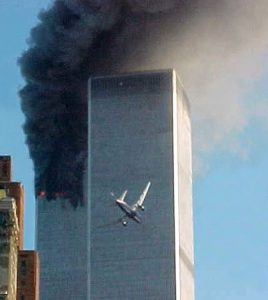 since he had his back to the buildings and the camera was pointed toward them. America ground to a halt as people tried to digest what had happened. We knew that we had regularly bombed other countries, and killed many more civilians in the process, but many were flabbergasted that it could happen on their soil.
since he had his back to the buildings and the camera was pointed toward them. America ground to a halt as people tried to digest what had happened. We knew that we had regularly bombed other countries, and killed many more civilians in the process, but many were flabbergasted that it could happen on their soil.
That afternoon I had two questions for my friends as we watched the footage. I wanted to know what was going to happen to media image of China, since until that moment it had been a military threat, and I wanted to know how long before the media reported they knew who had done the bombing. Almost immediately, China was on the list of the country’s allies, so that answered that question.
Despite my estimate that an enemy would be presented within three hours, my friend ventured that it would be immediate. He was correct. Long before anything was known about what had happened or who was responsible, the news sources began to show pictures of Osama bin Laden and suggesting that he might have been responsible. “Might” changed to “very likely” to certain, and within an hour he was the one who had committed the bombing, and by the next day the country was up in arms. Note that all this happened on the basis of suspicion since there was no time to gather evidence. When bin Laden was clearly responsible, no one knew yet who was on the planes and no one had taken responsibility for the attack. That did not slow down the snap judgements required by the moment, however, and, as any who lived during that time can attest, people were terrified and not thinking clearly.
That moment was a watershed for the new hatred of Muslims. Before that moment, and the various wars or incursions into the Middle East—even if we consider the Persian Gulf War and Iraq conflicts—the media had never presented the wars as based on a religious disagreement. After the World Trade Center bombing, however, the new enemy 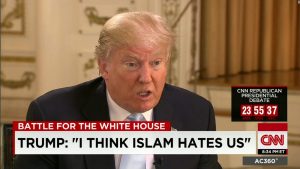 became terrorism, and that was general enough that it required a face. When communism was a threat it could wear any face, and that fact was a large part of the propaganda. But the face of terrorism became Muslim. The little known and largely ignored minority living in the United States became targets, and as the war machine heaved itself to its feet and began to swallow the country’s GDP, Muslims all over the world became the enemy of choice.
became terrorism, and that was general enough that it required a face. When communism was a threat it could wear any face, and that fact was a large part of the propaganda. But the face of terrorism became Muslim. The little known and largely ignored minority living in the United States became targets, and as the war machine heaved itself to its feet and began to swallow the country’s GDP, Muslims all over the world became the enemy of choice.
Suddenly the US-installed Taliban who had been gifted with arms and cash in the eighties so that they could hold back the Russians became an enemy. My friend always says that one of the biggest foreign policy mistakes of the US is their tendency to make allies of dangerous people, arm them with the latest weaponry and give them lots of money to do their dirty work, and then make them into well-armed implacable enemies by betraying them. Think back to Reagan’s selling arms to the Iran–Contras in order to illegally fund the right-wing terrorist Contra groups in Nicaragua. Osama bin Laden became another one of those frenemies, for the US funded him in Afghanistan and then turned their back once the Russians lost interest in the operation.
After the World Trade Center bombing, the media took up the torch and waved it about frantically as they rationalized the war in Afghanistan and then later Iraq. Bin Laden became the face of terror, and for many Americans—who had given no thought to Muslims in their life and could not point to the Middle East on a map—he was the terrifying face of this new religion. They didn’t know that Arab scholars were responsible for their sanitation systems, the invention of the glider, their numbering systems and algebra—likely they thought the term Arabic numbers was a coincidence—but the Quran soon became the best-selling book in the United States as they struggled to find out why Muslims wanted to kill them.
Unfortunately, they went about that search in the wrong way, for that is like reading the bible to find out why an anti-abortion protestor would bomb a clinic. The terrorist actions are not connected to religious values, but with the media stoking the fires of hatred, Sikhs were attacked—by Americans confusing turbans with Islam—and a vicious force of anti-Muslim hatred swept the country.
The war in Afghanistan was painted 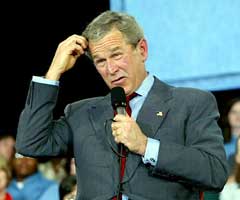 with the same religious brush, as President W. Bush made unfortunate reference to crusades when talking about the invasion, and the media began to talk about the position of women under the Taliban’s sharia law. No one cared about the women when the mujahideen were being funded in the eighties, but suddenly the women not being able to drive or choose their husband or take a part in government became a problem worthy of war. The same or worse policies under Saudi Arabian rule wasn’t deemed to be of importance, since they were our friends, but Afghanistan, the media told us, was a nest of vipers.
with the same religious brush, as President W. Bush made unfortunate reference to crusades when talking about the invasion, and the media began to talk about the position of women under the Taliban’s sharia law. No one cared about the women when the mujahideen were being funded in the eighties, but suddenly the women not being able to drive or choose their husband or take a part in government became a problem worthy of war. The same or worse policies under Saudi Arabian rule wasn’t deemed to be of importance, since they were our friends, but Afghanistan, the media told us, was a nest of vipers.
Although politicians made inflammatory speeches about Muslims, like they do, the media became the one to fan the flames until the conflagration painted every Muslim as a terrorist and hate crime as patriotism. 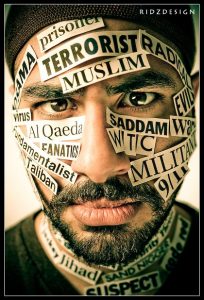 This continues to this day, as people of Middle Eastern descent are harassed in North America and Western Europe and mosques are denied planning commission permission to build or are bombed after construction.
This continues to this day, as people of Middle Eastern descent are harassed in North America and Western Europe and mosques are denied planning commission permission to build or are bombed after construction.
Last year I was talking to the same friend who knew an enemy would be declared so quickly after the bombing, and he asked me why I support Muslims. He cited their treatment of women as an example and called me out on my hypocrisy for pretending to be pro-women’s rights and yet not harbouring a hatred of Muslims. He was difficult to converse with, but I knew what media messages he had been subject to, so I could explain a few things about why his views were problematic.
I first told him that I didn’t really know much about the Islamic world. Other than my friends who are Muslims, and my many students who subscribe to the faith but are much more interested in their phones, I don’t make it a priority to find out much about Islam. I find all religions silly, and although I would not prevent another from believing what they wish as long as it is harmless, I have no interest in controlling anyone’s belief system. As well, I have only been to two Muslim-majority countries—Malaysia and Indonesia—and in Indonesia I was in an area of Sumatra that was largely Christian. There I was able to observe women carrying huge loads of wood while men 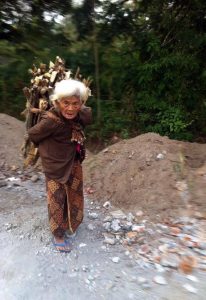 idly swiped at grasses on the side of the road with the machete. I doubt that religion has as much to do with men taking advantage of power over women anywhere in the world as greed and rather pathetic notions of superiority. In Malaysia, I saw no such signs as western media had told me to look for, women hidden behind veils and creeping along in the street, or being publicly beaten while other men look on approvingly. Instead, I saw a South East Asian people carrying on with their lives just like I had in Thailand and Cambodia.
idly swiped at grasses on the side of the road with the machete. I doubt that religion has as much to do with men taking advantage of power over women anywhere in the world as greed and rather pathetic notions of superiority. In Malaysia, I saw no such signs as western media had told me to look for, women hidden behind veils and creeping along in the street, or being publicly beaten while other men look on approvingly. Instead, I saw a South East Asian people carrying on with their lives just like I had in Thailand and Cambodia.
More importantly, I told my friend, I found his worry about the women in Afghanistan and Saudi Arabia puzzling, since I doubt he could point to the countries on a map and knew nothing about them. He told me to look it up online, but I asked him why he cared. “The puzzling thing,” I said to him, “is that you never cared about Muslims before. Although now you don’t know a single Muslim,  you are suddenly against that religion. Where do you suppose that vehement distaste comes from? You didn’t say anything about Muslims ten years ago. You never thought about them at all. Is it coincidental that you, and millions of others who are otherwise relatively tolerant, have lots of negative opinions about Islam?”
you are suddenly against that religion. Where do you suppose that vehement distaste comes from? You didn’t say anything about Muslims ten years ago. You never thought about them at all. Is it coincidental that you, and millions of others who are otherwise relatively tolerant, have lots of negative opinions about Islam?”
For me, that is the problematic part of the media’s role in this mixture of hatred people now have for Muslims in the west. In my high school class a fellow student 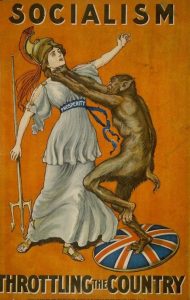 who wasn’t notable for his intelligence said, “Every communist should be shot.” The teacher, quite responsibly, asked him what a communist was, and he replied, “I don’t know. But they should be shot.” He had merely been subject to an older propaganda attempt, and now that the target has swung away from communism and moved on to terrorism and been given a Middle Eastern face, the racist machine of culture has rumbled to life. I am sure that if I asked him now, he would have quite firm opinions about another group of people he knows nothing about.
who wasn’t notable for his intelligence said, “Every communist should be shot.” The teacher, quite responsibly, asked him what a communist was, and he replied, “I don’t know. But they should be shot.” He had merely been subject to an older propaganda attempt, and now that the target has swung away from communism and moved on to terrorism and been given a Middle Eastern face, the racist machine of culture has rumbled to life. I am sure that if I asked him now, he would have quite firm opinions about another group of people he knows nothing about.
Millions of people in North America who never paused to think anything about Muslims suddenly are full of vociferous beliefs. They know what Muslims think, what they want, and most crucially, are afraid of them. They are afraid enough that they are willing to sign on to any government policy, start any war, and treat any of their neighbours like garbage. Without the media machine this would never have happened, so now when the media reports community concerns that mosques are being attacked by far right groups, I can’t help but see them as culpable. The ideas that are the definition of the far right arise as a result of propaganda like we have seen leveled against Muslims. These are not groups which have always existed just out of sight. They are individuals driven by hatreds that have been encouraged, and every time the media suggests that the white domestic mass killer is possibly mad and the believer in Islam is a terrorist, they add fuel to that particular racist fire.
I lived though the waning days of the red scare, when people had largely gotten over the propaganda 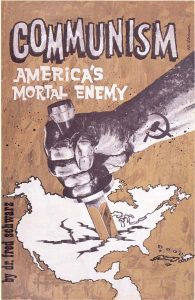 about the Soviet Union and were prepared to live their lives more normally. The rabid mobs that attacked those they thought were communists in the streets had disappeared, just like the Klan was largely confined to a few embittered outcroppings. Now that the racists have a new out-group to focus on, they have dusted off their sheets and hoods and encouraged others who would never have
about the Soviet Union and were prepared to live their lives more normally. The rabid mobs that attacked those they thought were communists in the streets had disappeared, just like the Klan was largely confined to a few embittered outcroppings. Now that the racists have a new out-group to focus on, they have dusted off their sheets and hoods and encouraged others who would never have 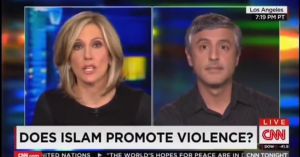 thought anything about Muslims without the constant barrage from the media and they are now causing havoc in a society that could easily be peaceful and prosperous.
thought anything about Muslims without the constant barrage from the media and they are now causing havoc in a society that could easily be peaceful and prosperous.
This is useful for governments which would like to have less scrutiny, as well as for the military industrial complex which feeds off wars, but it is ultimately destructive for those short-sighted goals as well. Hatreds tend to breed hatreds, and now that we have people shooting up mosques and hitting women wearing head scarves in the street, it is only a matter of time before those mobs come for other groups.
When that inevitably happens, the media will lament that they have no idea how such hatred arises, but they will be there to stoke the flames for the next out-group and grow their brand even while they reduce the possibility that they will have a future. The world they are leading us toward is not one which will allow the media to tell any story they wish, and they might easily find themselves out of a job, although if they are not willing to be responsible to the society they serve perhaps they have outlived their usefulness anyway.
In their place, we might have peer-to-peer information sharing instead. If we bemoan the condition of our fellow citizen’s understanding of others, it’s worth remembering that a seven-year-old girl tweeting about the bombing in Aleppo, Syria  did more to bring the story of that war to the west than any of the weak handwringing of the various media sources. Trapped while the bombs fell, she tweeted, “I just want to live without fear”, “I miss school so much”, and “I am very afraid I will die tonight.”
did more to bring the story of that war to the west than any of the weak handwringing of the various media sources. Trapped while the bombs fell, she tweeted, “I just want to live without fear”, “I miss school so much”, and “I am very afraid I will die tonight.”
In the future we may have to pick though the minefields of hatreds that our mass media have made of our information sources and choose those which lay claim to messages beyond the old “I hate communists” lines of my fifteen year old classmate. I look forward to when Muslims become either our friends or unknown, but I am not that excited about the new enemy such a polarized system seems to require. When the tiller is turned, I would caution all of us to watch those around us and see how they shift with the wind coming from a new direction and proudly proclaim “Oceania has always been at war with Eurasia.”
